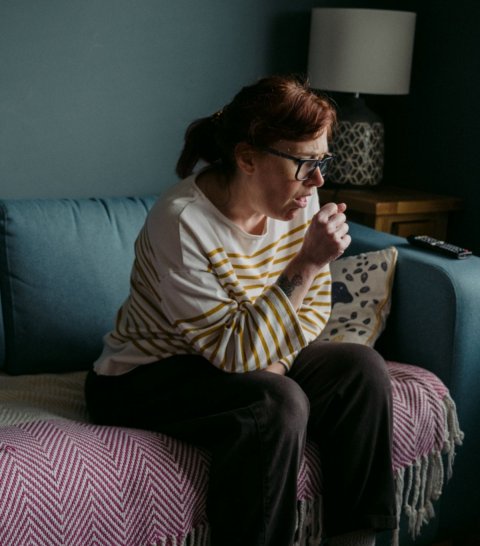News • For at least six months
Prior COVID-19 infection offers protection from re-infection
A new study suggests that individuals who have previously had COVID-19 are highly unlikely to contract the illness again, for at least six months following their first infection. The study, done as part of a major collaboration between the University of Oxford and Oxford University Hospitals (OUH) NHS Foundation Trust, was published as a pre-print.

Despite an estimated 51 million people infected with the virus worldwide, with high levels of transmission ongoing, reports of patients becoming re-infected after already having had COVID-19 are rare. However, up until now there have not been any large-scale studies of how much protection from re-infection people get after COVID-19.
The study, part of a major ongoing staff testing programme supported by the NIHR Oxford Biomedical Research Centre and Public Health England, covered a 30-week period (April – November 2020) with 12,180 health care workers employed at OUH. The health care workers were tested for antibodies to the virus that causes COVID-19 as a way of detecting who had been infected before. The hospital tested staff regularly for COVID-19, both when they became unwell with symptoms and also as part of regular testing of well staff. The researchers then followed whether staff who had been infected before had the same number of new COVID-19 infections as those who had not been infected before.
"We found no new symptomatic infections in any of the participants who had tested positive for antibodies."
Professor David Eyre
During the study, 89 of 11,052 staff without antibodies developed a new infection with symptoms. None of the 1246 staff with antibodies developed a symptomatic infection. Staff with antibodies were also less likely to test positive for COVID-19 without symptoms, 76 staff without antibodies tested positive compared to just 3 with antibodies. The three healthcare workers with antibodies who tested positive for the virus that causes COVID-19 were all well and did not develop symptoms of COVID-19 again.
This suggests that most people are unlikely to get COVID-19 again if they have already had it in the previous six months. Additionally, the opposite also proved true – health care workers who did not have antibodies against COVID-19 were more likely to develop the infection.
“This ongoing study involving a large cohort of healthcare workers has shown that being infected with COVID-19 does offer protection against re-infection for most people for at least six months – we found no new symptomatic infections in any of the participants who had tested positive for antibodies, while 89 of those who had tested negative did contract the virus. This is really good news, because we can be confident that, at least in the short term, most people who get COVID-19 won’t get it again," said one of the authors on the paper, Professor David Eyre of the University of Oxford's Nuffield Department of Population Health. “We know from a previous study that antibody levels fall over time, but this latest study shows that there is some immunity in those who have been infected. We will continue to follow this cohort of staff carefully to see how long protection lasts and whether previous infection affects the severity of infection if people do get infected again.”
While this is an important step in understanding how COVID-19 immunity may work, it is not enough data at the moment to make a judgement on longer-term protection (beyond six months from the initial infection). The study will continue to collect data, with the goal of verifying how long protection from re-infection might last.
Dr Katie Jeffery, Director of Infection Prevention and Control for Oxford University Hospitals said: “This is an exciting finding, indicating that infection with the virus provides at least short-term protection from re-infection – this news comes in the same month as other encouraging news about COVID vaccines. I would like to thank all our staff who have shown great commitment in attending our clinics for repeated swab and antibody testing in order to keep our patients and each other safe.”
Source: Oxford University
20.11.2020





